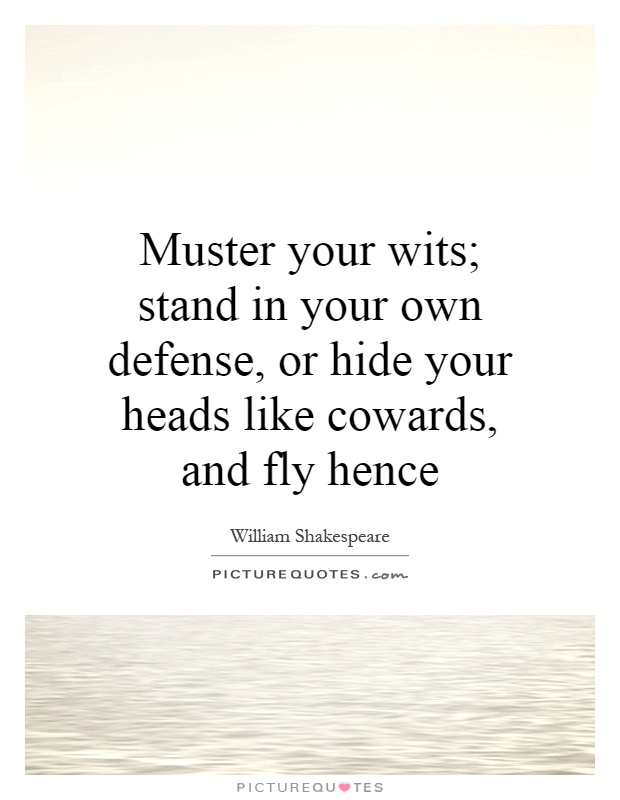Muster your wits; stand in your own defense, or hide your heads like cowards, and fly hence

Muster your wits; stand in your own defense, or hide your heads like cowards, and fly hence
In the world of William Shakespeare, the concept of courage and standing up for oneself is a recurring theme in many of his plays. One particular quote that encapsulates this idea is “Muster your wits; stand in your own defense, or hide your heads like cowards, and fly hence.” This powerful statement challenges characters to face their fears, take control of their destinies, and defend themselves against adversity.In Shakespeare’s works, characters are often faced with difficult situations that require them to make tough decisions and take a stand for what they believe in. Whether it be fighting for love, seeking justice, or standing up against tyranny, the characters in Shakespeare’s plays are constantly tested and pushed to their limits. The quote “Muster your wits; stand in your own defense, or hide your heads like cowards, and fly hence” serves as a call to action for these characters to rise up and face their challenges head-on.
One of the most famous examples of a character who musters their wits and stands in their own defense is Hamlet. Throughout the play, Hamlet is faced with numerous obstacles and betrayals that threaten his sanity and his very life. Despite the overwhelming odds against him, Hamlet refuses to back down and instead chooses to confront his enemies and seek justice for his father’s murder. In the end, Hamlet’s courage and determination ultimately lead to his downfall, but his unwavering resolve to stand up for what he believes in is a testament to his strength of character.
Similarly, in “Macbeth,” the titular character is faced with a choice between seizing power through treachery and deceit or standing by his morals and principles. When confronted with the prophecy of becoming king, Macbeth must decide whether to muster his wits and defend his honor or succumb to his ambition and hide like a coward. Ultimately, Macbeth chooses the latter and embarks on a path of destruction and madness that leads to his downfall.












 Friendship Quotes
Friendship Quotes Love Quotes
Love Quotes Life Quotes
Life Quotes Funny Quotes
Funny Quotes Motivational Quotes
Motivational Quotes Inspirational Quotes
Inspirational Quotes